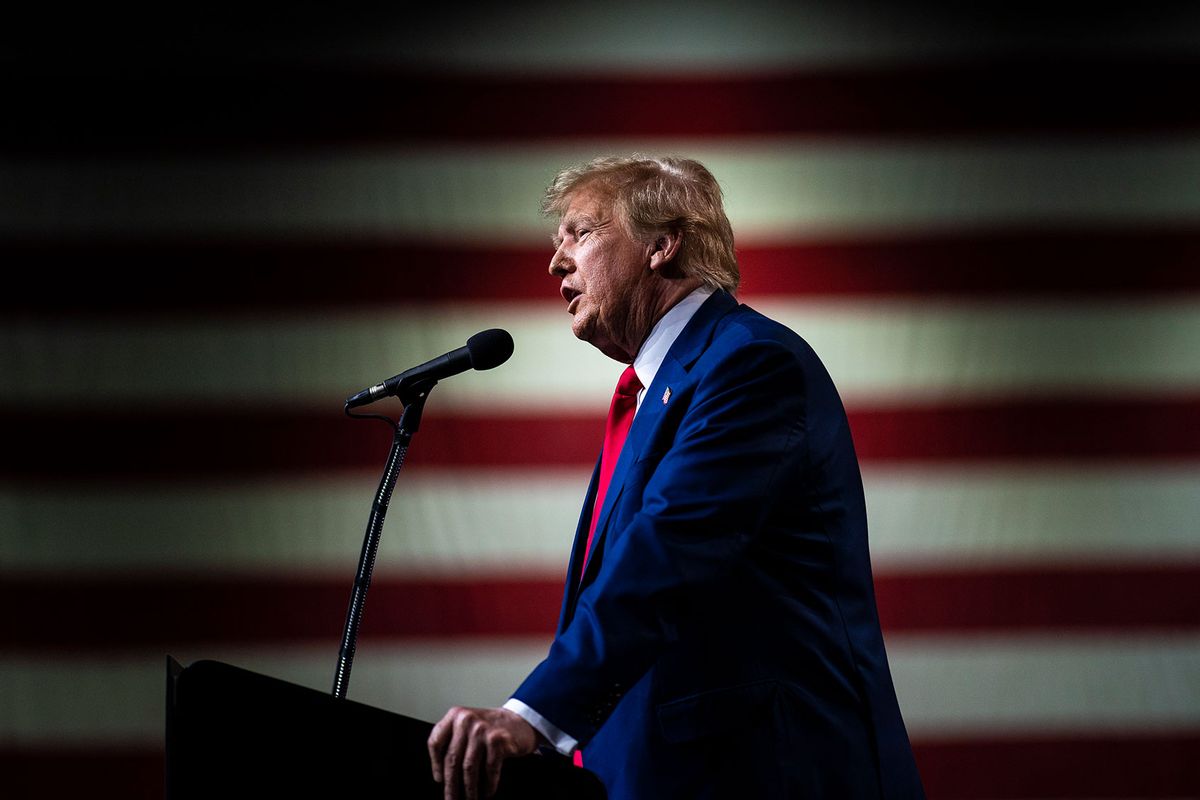“Bizarre”: Legal experts warn Trump’s Supreme Court argument is a “massive tactical blunder”

Former President Donald Trump’s legal team on Monday filed a brief urging the Supreme Court to keep him on the Colorado ballot.
Trump’s lawyers argued that Section 3 of the 14th Amendment, which bars certain elected officials, including an “officer of the United States,” from holding office if they have “engaged in insurrection” does not apply to him because a president is not an “officer” of the United States.
Trump’s team also argued that Section 3 is a prohibition on “holding” office, not running for office, and claimed that “Congress can waive this prohibition between now and the end of the next presidential term” on Jan. 20, 2029.
“So no court or litigant can declare that President Trump is ‘presently’ disqualified from holding office without assuming or predicting that Congress will refuse to lift any section 3 disability that might apply,” the brief said, adding that neither the Colorado Supreme Court nor the U.S. Supreme Court “can declare a candidate ineligible for the presidency now based on a prediction of what Congress may or may not do in the future.”
Trump’s lawyers accused his challengers of pursuing an “anti-democratic case” against the “leading candidate” for president.
“At a time when the United States is threatening sanctions against the socialist dictatorship in Venezuela for excluding the leading opposition candidate for president from the ballot,” Trump’s lawyers claimed that the voters who challenged Trump’s candidacy are asking the Supreme Court to “impose that same anti-democratic measure at home.”
The Supreme Court is scheduled to hear arguments on Thursday. MSNBC legal analyst Jordan Rubin noted that Trump’s lawyers littered the filing with “arguments that have largely been picked apart by briefs already filed on the high court docket in this case, including the ahistorical notion that the president isn’t an ‘officer’ who can be disqualified under the 14th Amendment.”
Conservative attorney and frequent Trump critic George Conway called the filing “bizarre” and a “sign of weakness.”
“This strikes me as a massive tactical blunder,” tweeted University of Texas Law Prof. Lee Kovarsky.
Georgia State Law Prof. Eric Segall said it is “true” that Section 3 does not explicitly mention the president.
“It’s also true it doesn’t mention horses, foreigners, or accountants. That’s because everyone knew POTUS was obviously covered,” he tweeted.
Former longtime conservative Judge J. Michael Luttig, who served as an adviser to former Vice President Mike Pence, wrote that he “would not have made the revealing, fatuous, and politically and constitutionally cynical, concluding argument that the former president and his lawyers made to the Supreme Court.”
Luttig said the filing is “tantamount to an acknowledgment that the former president and his lawyers have all but concluded that their arguments have become so weakened by the briefing of respondents… that they believe the Supreme Court is likely to hold the former president is disqualified under the Fourteenth Amendment.
“What else could possibly explain this eleventh-hour, Hail Mary argument that not even the Supreme Court of the United States can ever decide whether the former president is disqualified from the presidency,” he added. “Not now. Not ever.”
Still, most legal observers “think it’s unlikely” the Supreme Court will uphold the Colorado court’s ruling “despite the letter of the law” because it “feels undemocratic,” wrote former U.S. Attorney Joyce Vance.
“That’s an odd view for a Court full of textualists to take, but there are some off ramps that would let them duck deciding the question head on,” she tweeted.
George Washington University Law Prof. Randall Eliason said that is the reason Trump’s filing “probably makes tactical sense.”
“Holding that the president is not an officer subject to the disqualification clause allows the Court to rule for Trump while avoiding taking any position on whether he engaged in an insurrection. It’s their easiest off-ramp,” he wrote. “To be clear – I’m not saying I think that would be a good or reasonable ruling. Just that it’s one this Court might bite at, so I can understand that focus on it in their brief.”
Read more
about the Trump ballot challenge


